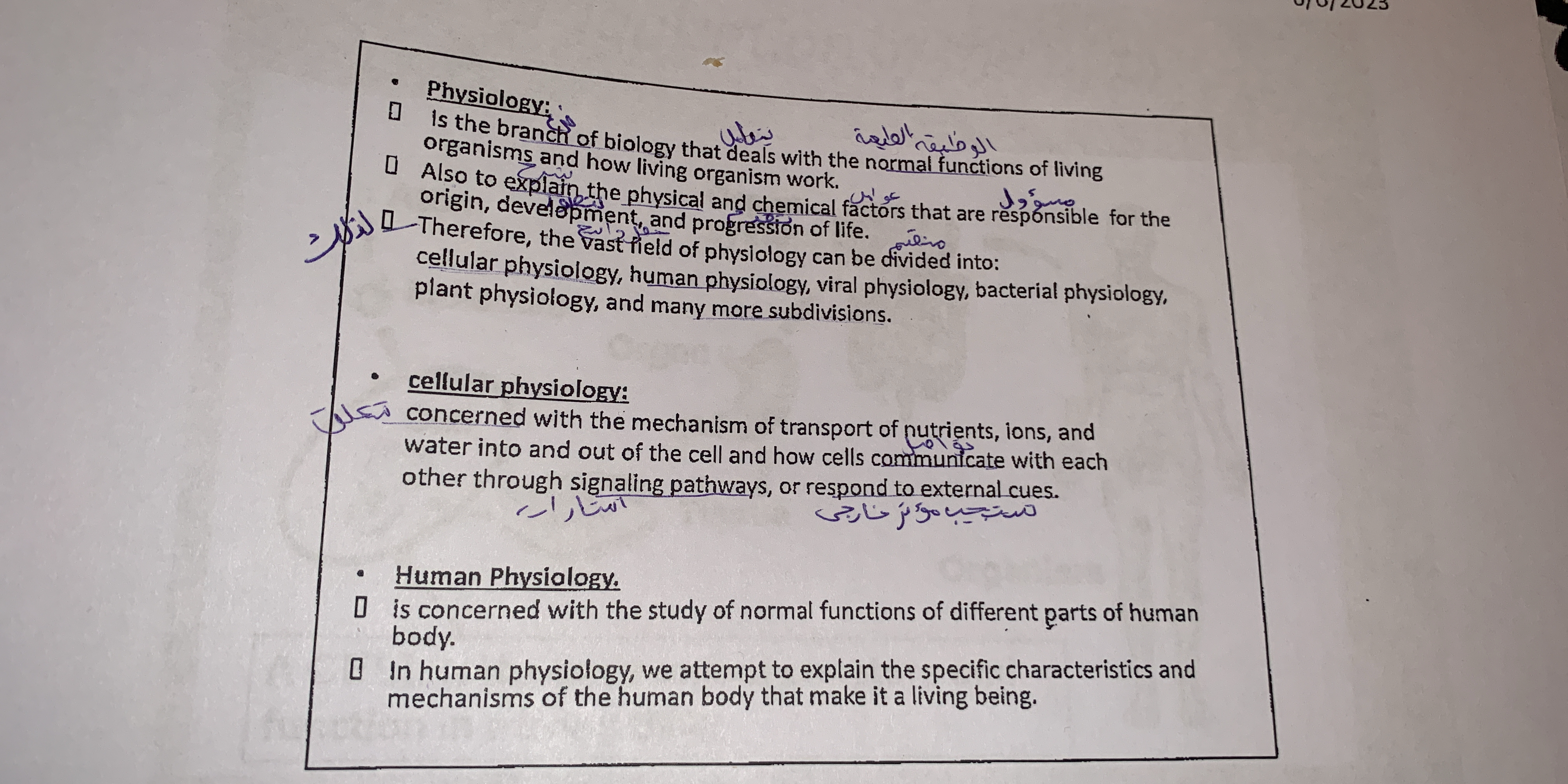What are the different branches of physiology and their significance?

Understand the Problem
The text discusses the different branches of physiology, focusing on cellular physiology and human physiology, and explaining their significance in understanding biological processes.
Answer
Branches include cellular, human, viral, bacterial, and plant physiology.
Branches of physiology include cellular physiology, which focuses on cell mechanisms, human physiology, which studies functions of the human body, and other branches like viral, bacterial, and plant physiology. Each branch provides insight into different biological processes and systems.
Answer for screen readers
Branches of physiology include cellular physiology, which focuses on cell mechanisms, human physiology, which studies functions of the human body, and other branches like viral, bacterial, and plant physiology. Each branch provides insight into different biological processes and systems.
More Information
Physiology branches help in understanding the specialized functions of cells, organs, and systems in living organisms, aiding medical and scientific advancements.
Tips
Avoid confusing cellular physiology with other branches as it specifically deals with cell processes.
Sources
- What Are the Branches of Physiology? - AAT Bioquest - aatbio.com
- Introduction to physiology: History, biological systems, and branches - medicalnewstoday.com
- Physiology - Explanation, Types, Branches, and FAQs - Vedantu - vedantu.com
AI-generated content may contain errors. Please verify critical information